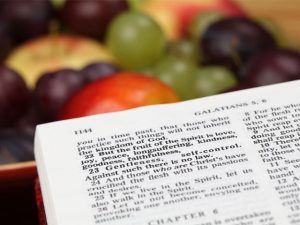The expression “Food as medicine” is catching on. I’m hoping that it catches on even more. Food is medicine. Some foods are bad medicine and perhaps shouldn’t be called food. Some food is great medicine and could even be called, well, medicine.
The healthcare industry is booming. Notably, the prescription drug industry. So much so that aggressive entrepreneurs, with questionable morals, are seizing control of drug companies that manufacture “must-have” drugs. The prices of life-saving prescriptions, such as EpiPens, are increased by large amounts to driving profits higher.Pure capitalists may applaud such efforts. After all, according to their playbook, it is supply and demand that should determine outcomes, and saving lives only count to the extent that saving lives will increase profits.
Healthcare professionals are finding that food is a competitor to prescription drugs. Sometimes eliminating the need altogether for a particular prescription. Frequently preventing the need to write prescriptions altogether. So food as medicine is a proposal for doctors to be able to write prescriptions for healthier food. This would require that health insurance cover most of the cost, in the same way that prescription insurance covers a particular drug. But the payback is actually better health which would in turn increase profits.
Radical? You bet. Effective? Research suggests that food as medicine could reduce healthcare costs in this country. For example, providing a 20 percent incentive for fruit and vegetable purchases to Medicaid and Medicare beneficiaries is estimated to prevent 1.95 million cardiovascular disease events and to save $40.9 billion in healthcare costs.
This is a big enough number to create a stir. And it has. A threat to the profits of prescription drug companies is a threat that will be met with political opposition. The drug companies are making large campaign contributions to help politicians who are willing to support them win elections. And, they expect help in fighting against ideas that could reduce their profits.
 Food, both physical and spiritual, is medicine. And both are necessary for life. And doctors should also be writing prescriptions for spiritual food as medicine.
Food, both physical and spiritual, is medicine. And both are necessary for life. And doctors should also be writing prescriptions for spiritual food as medicine.
Healthcare professionals know that our spiritual lives affect our physical health. Some doctors have learned this from Jesus, but most professionals rely on medical journals that are more likely to quote research rather than scripture. I will leave the scientific research to the professionals and focus on the scriptural research.
The 2018 Farm Bill allocated money for prescription produce programs that encourage physicians and medical institutions to make food a formal part of treatment, rather than relying solely on medications. But this money is for actual, physical food, and not prescriptions to join a local church. But this was a start, albeit a small start, with only $4 Million total allocated to such programs nationwide. Perhaps future legislation can move a little further away from supporting the pharmaceutical industry and allocate some of that money for both physical and spiritual food as medicine.
The idea of spiritual food as medicine is found in scripture. In the Gospel of Luke, Jesus quotes ancient scripture in response to the enemy’s suggestion that Jesus change stone into bread when He was hungry from fasting. “You must not depend on bread alone to sustain you, but on everything that the Lord says” (Deuteronomy 8:3 GNT).
I am the vine, and you are the branches. Those who remain in me, and I in them, will bear much fruit; for you can do nothing without me.
John 15:5
This first temptation of Jesus by the enemy is a classic strategy that most of us have heard levied at us. “If you are really ____?” the enemy challenges us, “then you would ____.” The blanks depend on the person. The temptation is often to shift our focus away from what matters most to God and towards satisfying our immediate desire. The impulse buy. The fast food ad.
Jesus seemed to be referencing His need to put God’s will ahead of His own. Not to mention that making that first decision to give in to the temptation to put something else first, ahead of God, in our lives, is a slippery slope. Like that quick stop at McDonald’s when you can smell the fries cooking a block away. It doesn’t take long before McDonald’s is one of your frequent stops. Turn this into a habit long enough, and the cardiologist will also be a frequent destination for you.
If you have followed our recent worship series, Back to the future, you have heard me talk about the criticality of worship in rebuilding our neighborhood. The work that we do, no matter how helpful, will fall short without worship. Likewise, the work that we do for ourselves will fall short without worship. We are a hot mess of spirit and flesh. And we are created by, and in the image of, a God who demands our attention.
Our next worship series is scheduled to begin on Sunday, October 20. I’m calling it Food as medicine. It may be a great time to start that diet that you have been putting off. It may also be a great time to begin that spiritual practice or join that Bible study group that you have been thinking about doing. There is a great synergy between spiritual practices and what we choose to put into our bodies. Food as medicine is a great idea on multiple levels.
Be here each Sunday and invite your friends and neighbors. I lead a short Bible study in the Asbury Café at 9:30 am. You can find more information about us on our website at FlintAsbury.org.
Pastor Tommy

